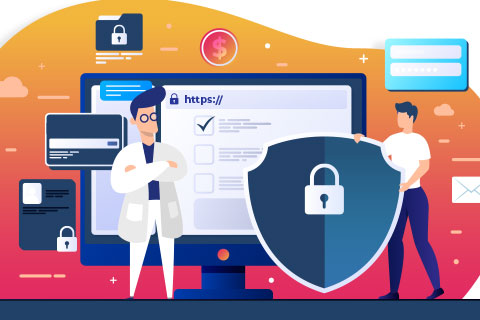
Over the past few years there has been a gradual increase in medical devices and technologies, consisting of sensitive data of high monetary and intelligence value along with patient/institution information. To avoid loss and destruction of intellectual property, cybersecurity in the pharmaceutical industry is crucial and non-negotiable.
Cybersecurity threats faced by pharmaceutical companies:
- Data Breaches and Ransomware attacks: Since pharmaceutical companies carry sensitive and classified information, it faces a high risk of being targeted by hackers exploiting the vulnerabilities of the system to steal data or hold them for their ulterior motives.
- Phishing: Deceptive attacks aimed at the employees to find out confidential data is another way of breaching the system. These emails can be cleverly disguised and look seemingly innocent, which makes the employee unsuspecting of a security breach.
- Insider Threats: Security issues don’t always stem from external sources. Employees, staff or even a temporary employee with access to the system can be a major security risk for the company if proper measures are not taken whether intentionally or not.
There are more reasons as to why cybersecurity is an essential feature in the regulatory pharma industry:
- Data Integrity: Like said before, sensitive information of high value needs to be protected since it can be targeted by hackers easily. Detailed clinical trials, drug components and research findings need to be accurate and reliable for regulators to make sensible decisions. Cyber-attack on these files can cost a company time and money as well as their brand image.
- Compliance Requirements: Regulatory bodies like the FDA have specific security measures and protocols that must be followed regarding their compliance submissions. Failure to do so will result in companies facing penalties or the rejection of their submissions.
- Trust Breach: Regulatory bodies rely on pharmaceutical companies to provide accurate and secure information. Cyberattacks and breaches in cybersecurity can cost this trust and make the regulatory process more rigorous and time-consuming.
In the previous year, Sun Pharmaceutical Industries, one of India’s largest generic drug producers, reported a major cybersecurity breach which impacted its operations. It was one of the several high-profile ransom cybersecurity breaches made in the past three years. Such threats and attack pose a great challenge to national security and public health.
According to Lee Kim, Senior Principal, Cybersecurity and Privacy of HIMSS, the problem is not the in technology but the lack of cyberliteracy. Compliance security needs to be more detailed and less check-box type which just covers the surface level of the problem. Here are some measures to be taken to ensure an all-rounder cybersecurity coverage:
- Data Governance and Access Control: It is best to start from the core. Establishing and maintaining clear policies and protocols for managing data through all life cycles can reduce data integrity compromise and the risk of manipulation. After which maintaining access to information and data will be granted according to usage and needs to minimize damage to potential threats. Finally, periodic check and review of access of data to appropriate authority and remove inactive accounts.
- Technical Safeguards: Data Encryption is crucial to conceal data from viewers and hackers. Having a network segregation can isolate critical regulatory datapoints from less sensitive ones, preventing spread of attacks in case a breach occurs. Strong Passwords and firewalls should be installed to fortify the security further and finally, regular checks and updates to scan vulnerabilities.
- As mentioned earlier, Cyberliteracy is crucial to have a strong cybersecurity. So, training and education of best practices and protocols must be regular as well as education on the importance of data integrity.
- Additionally third-party management is another aspect to look into as well as having a incident response plan so that in time of crisis, there is a protocol to follow. Finally, regular, and timely risk assessment must be followed so that the whole system will work like a well-oiled machine.
The healthcare and pharmaceutical sector has an abundance of sensitive and confidential information that provide monetary and intellectual value. This acts like a gravitational pull to cybercriminals and non-governmental organizations. With the adoption of the digital and technology, pharma sector does not just have to protect public health but also create a strong digital fortress to safeguard their patients and the industry.
Establishing practices to protect and safeguard data is crucial and needed post pandemic with the rise of cybercrimes. As technology will continue to influence our daily lives, cyberliteracy and adopting the best practices will always go a long way to secure data, operations, and brand image.
